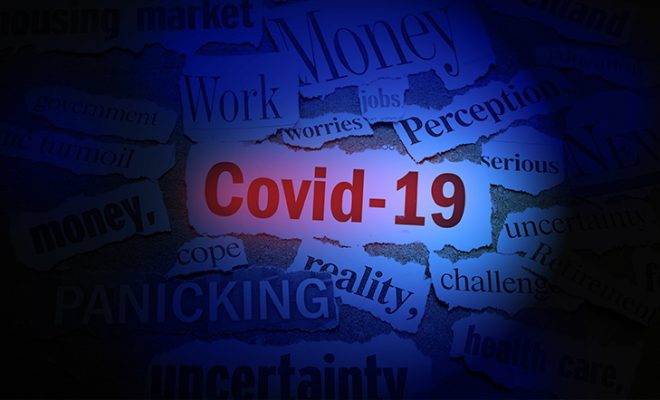Soup to Nuts Guide to Creating a Foolproof Will
Most people are inclined not to think about their mortality. Hence, they do not consider estate planning, especially writing a will, as an imperative task. Moreover, writing a will is often regarded as complicated, irrelevant, and most of all ‘a thing of the rich’. As per a 2020 Estate Planning and Wills survey conducted by Caring.com, only 25% of all participants had a will in place. Even though 60% thought having a will is necessary, they had not taken any significant measures in that direction. The importance of a will in estate planning is indispensable. A will is a legal document that specifies the wishes of the person on the distribution of their property and assets after death. But since a will can be challenged in the court of law, it is important to prepare it with precision.
Here is a comprehensive guide that can help you create a foolproof will:
Table of Contents
1.Understand your need for a will
Before considering to write a will, it is important to understand the basic purpose of the will. A will is something that all asset holders should have, irrespective of their financial status. It is not a ‘thing for the rich’. It is a legally enforceable document that assures the testator that the distribution of assets and property will be made in accordance with the owner’s wish. Thus, it is advisable to draft a will accurately to keep the estate safe from probate courts and other legal issues.
2. Take Inventory and Decide Beneficiaries
The next step is to take note of all inventory. This is inclusive of assets, properties, shared holdings, bank balances, savings, investment accounts, policies, etc. It can also include assets such as a house, car, jewelry, and other similar possessions. In addition to this, the document lists your liabilities as well. You are required to collect all papers, certifications, registrations, licenses, etc. for all your owned assets. Once you have these things in place, you need to draw a near-to-precise estimate of the value of the inheritance. This can help you decide what should be distributed, to whom, and in what share. You can choose to pass on the desired share to your surviving spouse, children, extended family, and other friends and relatives. However, it must be noted that if your shared accounts and assets, including an IRA (Individual Retirement Account), a company 401 (k) account, and a life insurance policy have an existing beneficiary, that person will be preferred over the will as per law. Hence, all beneficiaries – including the will and other assets – should be updated and maintained as per your current wishes.
3. Draft the Will and Choose the Executor
Once you have decided the allocation, the next step is to legalize it by drafting a will. It should comprise all your assets, the share in which they need to be distributed, the beneficiary of each share, designated guardians, trustees, etc. It is important to draft the will in the best of your health and with a sound state of mind. Moreover, it is good to be specific and realistic about who inherits what. Try your best to ensure that there is no ambiguity. Any negligence on this part would make the will more prone to be contested in the court of law. It is advisable to engage the services of a professional estate planner to make sure that you make your will with accuracy. After drafting the document, you would need to select an executor for the will. An executor is a person who is in charge of reading your will and ensuring it is executed as stated. The executor will oversee the distribution of assets and pay off debts and taxes. Ideally, the executor should be a sound-minded, responsible, and trustworthy person. So, you could choose your bank, a family member, a friend, or your attorney to be the executor. The only essential thing is to ensure that this person is ethical and will not be intimidated by any future stipulations. Another crucial matter to keep in mind is to invoke your Power of Attorney, in the event of incapacitation or death. You may need to assign the executor as the administrator of your estate in such a case.
4. Choose a Guardian for your Children
This is relevant for people who have minor children or kids that need more attentive care due to a mental or physical disability or an underlying health issue. In such cases, it is important to name a guardian in the will. This guardian can be a close dependable person who would be willing to take on the responsibility in your absence. Moreover, it is advisable to discuss the matter with the concerned person before naming them. You can also choose to set aside some funds for the guardian. This can be considered as reimbursement of expenses incurred while taking care of a child. In your absence, the guardian gains access and authority to all your assets as specified in the will.
5. Sign your Will
The most critical step in creating a foolproof will is to sign and date the will. But it must be done in the presence of at least two witnesses. These witnesses are also asked to sign as proof. Only a written will with valid signatures and attendance of the witnesses is considered authentic as per law. However, you cannot select any person as a witness who is a stakeholder in the will. In addition to this, they should be at least 18 years old to qualify as witnesses. In case of any discrepancy in this part, the will could be challenged in court. It is important to have the witness specify that you signed the will without any pressure and in the right state of mind. You can also get a medical certificate from the doctor to verify your mental state to avoid any challenges in the future. Since each state has its legalities in terms of signing the will and witnesses, it is beneficial to conduct a pre-check.
6. Safeguard your Will
After everything is sorted, it is important to keep the will (signed and witnessed) in a safe and secure place. This place should be protected from fire, theft, and other hazards. Moreover, you must inform your attorney, bank, or other reliable family members or friends about the existence of the will and where you have placed it. It is also good to store all other financial documents in the same place. These can include your bank account passwords, tax returns, insurance policies, funeral instructions, and any other information that you would like to pass on.
7. Update your Will
The final and most important part is to update and review your will time and again. A will is not something that you draft and set aside. As time advances, you might need to add or remove liabilities, assets, properties, etc. You can also take a considerate look at the distribution dynamics. Additionally, you might want to review the executors, beneficiaries, and administrators of the estate, etc. to reflect new relationships as you grow old. Events like marriage, the birth of your children, divorce, the unfortunate case of a physical or mental disability, suffering from a critical illness, etc. need to be accounted for in your will too. Not updating the will with major life events can cause chaos and disagreement amongst your beneficiaries later.
To Sum it Up
Most people do not incorporate a will in their financial agendas. But it is a critical aspect to safeguard the future of your loved ones. By following this easy paradigm, you can provide the much-needed assurance to your family and secure their future.
To ensure you frame an error-proof, comprehensive, and clear will, you can get guidance from professional financial advisors.



















